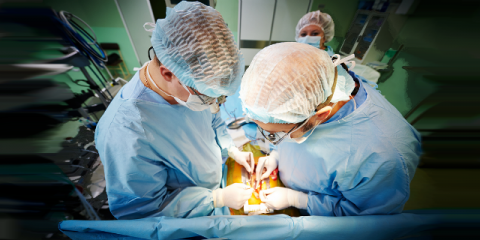In a nutshell This article presents summarized data from two clinical trials. The trials evaluated the addition of Capecitabine to standard postoperative chemotherapy for patients with high risk early breast cancer. Some background Capecitabine is a chemotherapy drug that is taken orally and slows the growth of tumors. It can be...
Read MoreCurrent stage?-Stage II Posts on Medivizor
Rising PSA levels after radiation treatment can predict prostate cancer mortality
In a nutshell This article evaluated whether the interval to biochemical failure (IBF) can be used as a prediction factor for prostate cancer mortality. The IBF was found to be the best current predictor of prostate cancer mortality in patients previously treated with radiation therapy. Some background Biochemical failure is defined...
Read MoreBenefits of postoperative chemotherapy vary according to breast cancer type
In a nutshell This study questioned the benefit of adding chemotherapy to postoperative hormonal treatment in the case of lobular breast cancer. Their findings were that chemotherapy seems to offer no additional beneficial effects in women with lobular breast cancer receiving hormonal therapy. Some background There are two main types of breast...
Read MoreComparison between different chemotherapy regimens for early breast cancer
In a nutshell The present study compared the long-term efficacy and safety of different adjuvant chemotherapy regimens for breast cancer. Main results: chemotherapy clearly provides survival benefits; the higher the dosage, the higher the survival rates, despite more toxicity. Some background Many women with early stage breast cancer receive...
Read MoreBenefits of 10-year versus 5-year Tamoxifen treatment
In a nutshell Tamoxifen treatment is given to many breast cancer patients after surgery to prevent recurrences and improve survival. It is usually given for a maximum of 5 years. This study determined that longer treatments offer further survival benefit. Some background Tamoxifen is a drug used against breast cancers which produce...
Read MoreThe use of systemic chemotherapy for patients with poorly differentiated and signet cell adenocarcinoma of the appendix
In a nutshell The present study evaluated the effects of systemic chemotherapy and cytoreductive surgery (CRS) on survival in patients with aggressive types of cancer of the appendix (poorly differentiated and signet ring cell adenocarcinoma). The main findings were that systemic chemotherapy appears to be a viable treatment option for these types of...
Read MoreFocal Ultrasound-based therapy for prostate cancer as means to reduced genito-urinary side effects
In a nutshell This study evaluated whether focal Ultrasound-based therapy of individual cancer lesions can minimize the side effects associated with radical therapy that involves the whole prostate gland. Main findings: Focused therapy directed into cancer tissues significantly reduces genitourinary side effects like urine-leakage and impotence. Some...
Read MoreDeveloping a Standard of Care for Intermediate-Risk Prostate Cancer
This review article describes clinical evidence of the benefits and risks of a treatment combined of a short course of hormonal therapy (termed ‘androgen deprivation therapy’, ADT) and radiation given in escalated doses. Patients involved were those with localized prostate cancer but higher Gleason score or prostate-specific antigen (PSA)...
Read MoreDoes Tamoxifen reduce the risk of cancer in a second breast in BRCA1 and BRCA2 carriers?
In a nutshell The risk of breast cancer is high (~80%) in women who inherit a damaged (mutated) gene called BRCA1 or BRCA 2 (‘BRCA carriers’). Following the first diagnosis, their risk of developing another tumor in the second breast within 10 years is 30%. Some background Some types of breast cancer need estrogen (female sex...
Read MoreProstatectomy and radiation effects on urinary, bowel and erectile dysfuntion 2, 5 and 15 years after prostate cancer diagnosis
In a nutshell This paper evaluated the long-term influence of prostate cancer treatment with prostatectomy or radiotherapy on urinary, bowel and sexual function. Prostatectomy was associated with a higher rate of urinary and erectile dysfunction, whereas radiotherapy caused more frequent bowel urgency at 2 and 5 years after diagnosis. Some background...
Read MoreA new biomarker panel for the assessment of prostate cancer recurrence risk
In a nutshell The present study evaluated a new biomarker that could be used to predict recurrence of prostate cancer after surgical removal of the prostate gland (prostatectomy). Three proteins called Sp1/Sp3/FLIP, combined with the Gleason score were found highly prognostic in the prediction of recurrence, and can therefore help guiding the initial...
Read MoreExtended versus Targeted Lymph Node Surgery for Invasive Breast Cancer
In a nutshell This study compared survival rates for two surgical strategies in treating invasive breast cancer. The main finding was that the targeted Sentinel Lymph Node Dissection (SLND) procedure was just as effective as the traditional Axillary Lymph Node Dissection (ALND) surgery. Some background Lymph from the breast drains...
Read More














